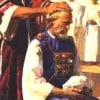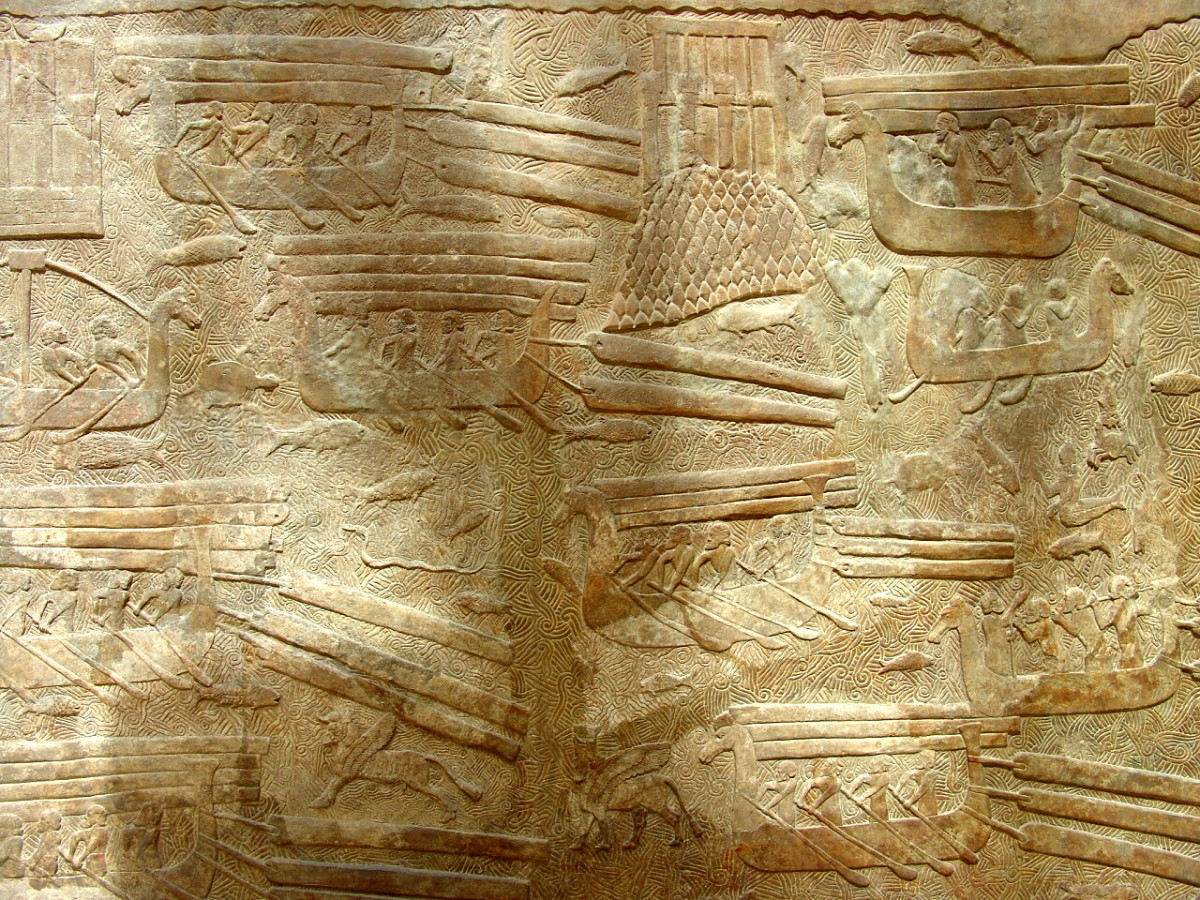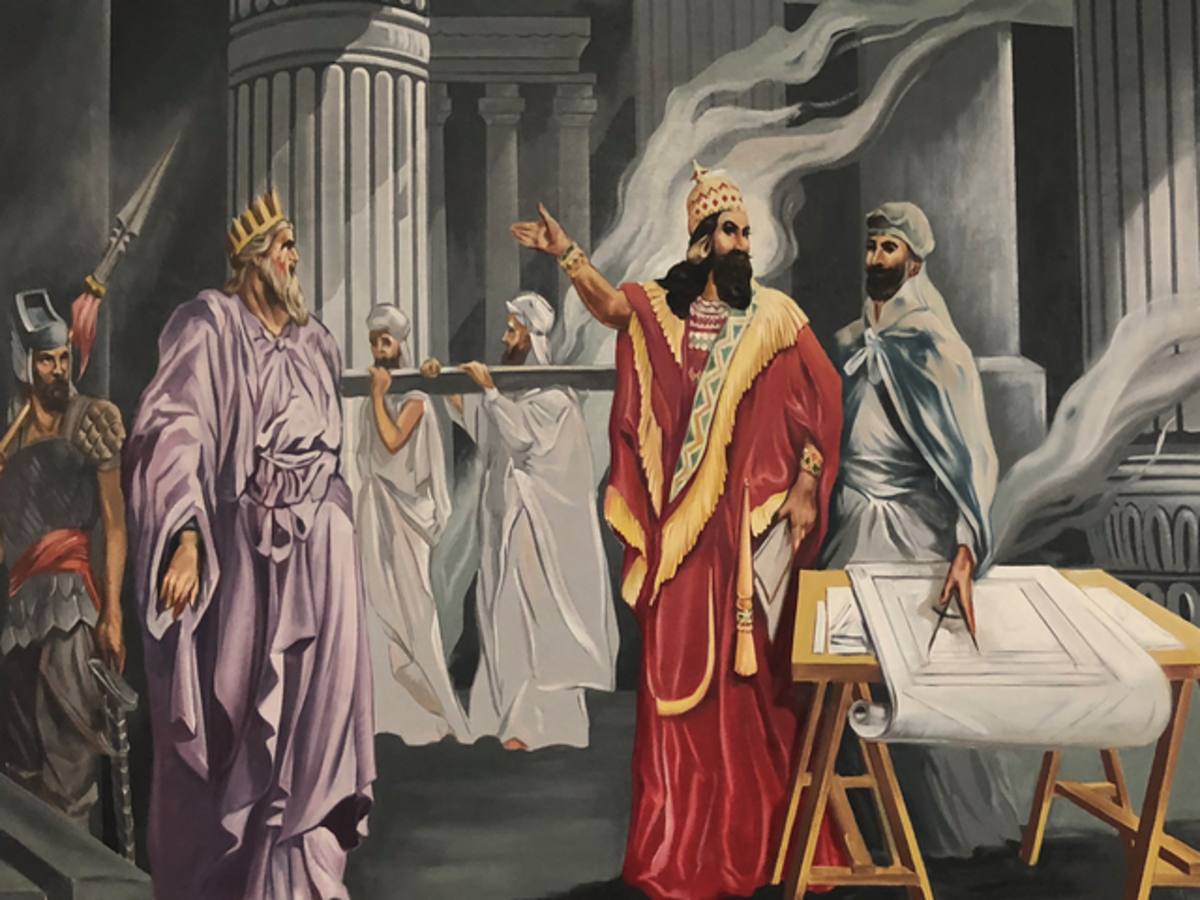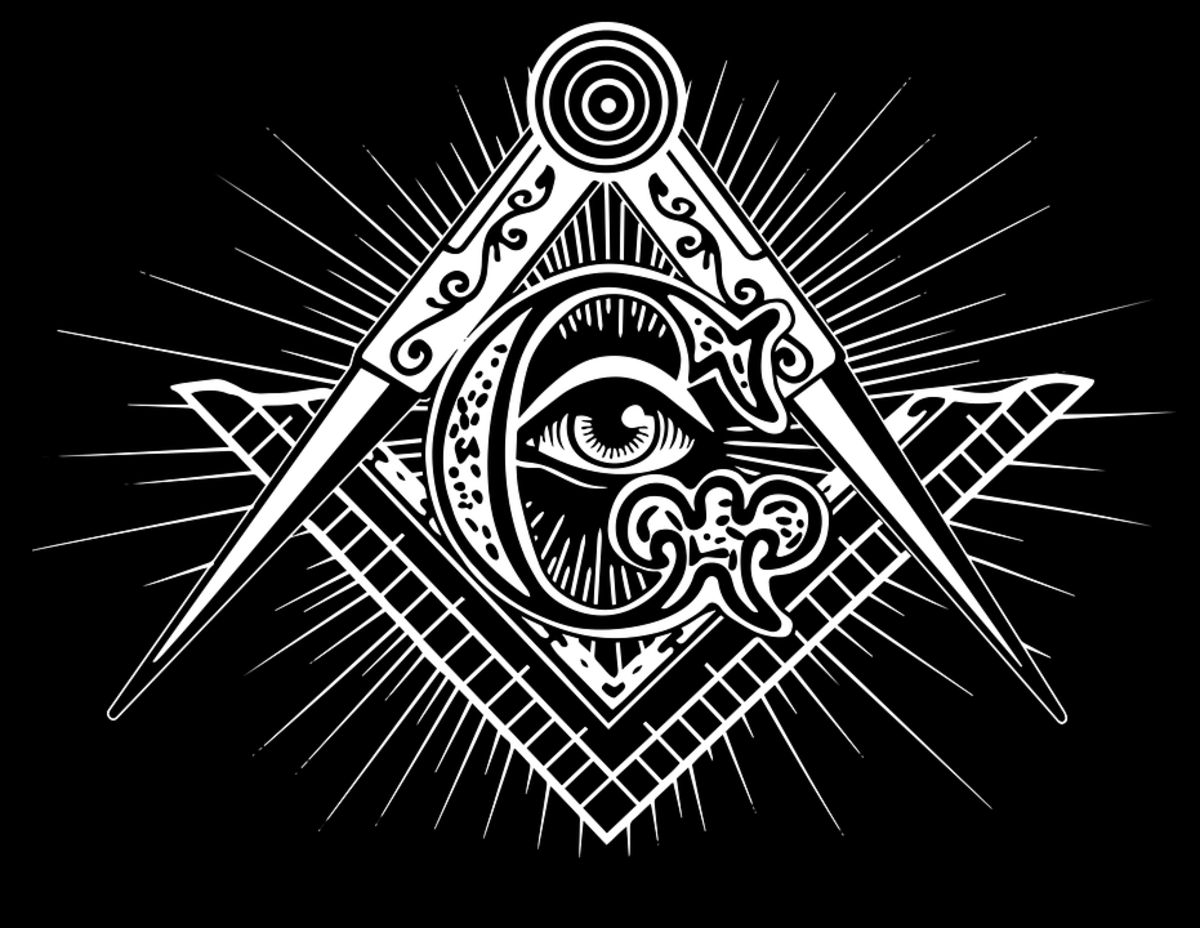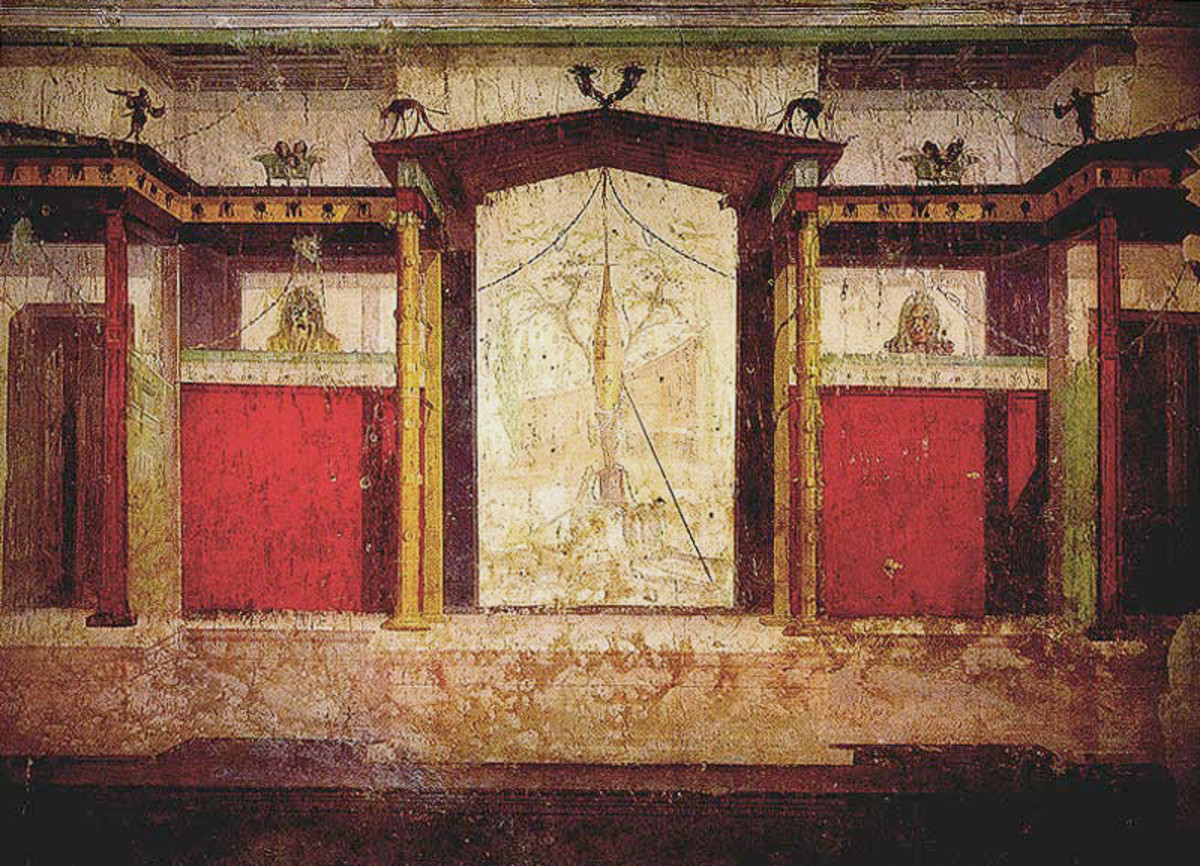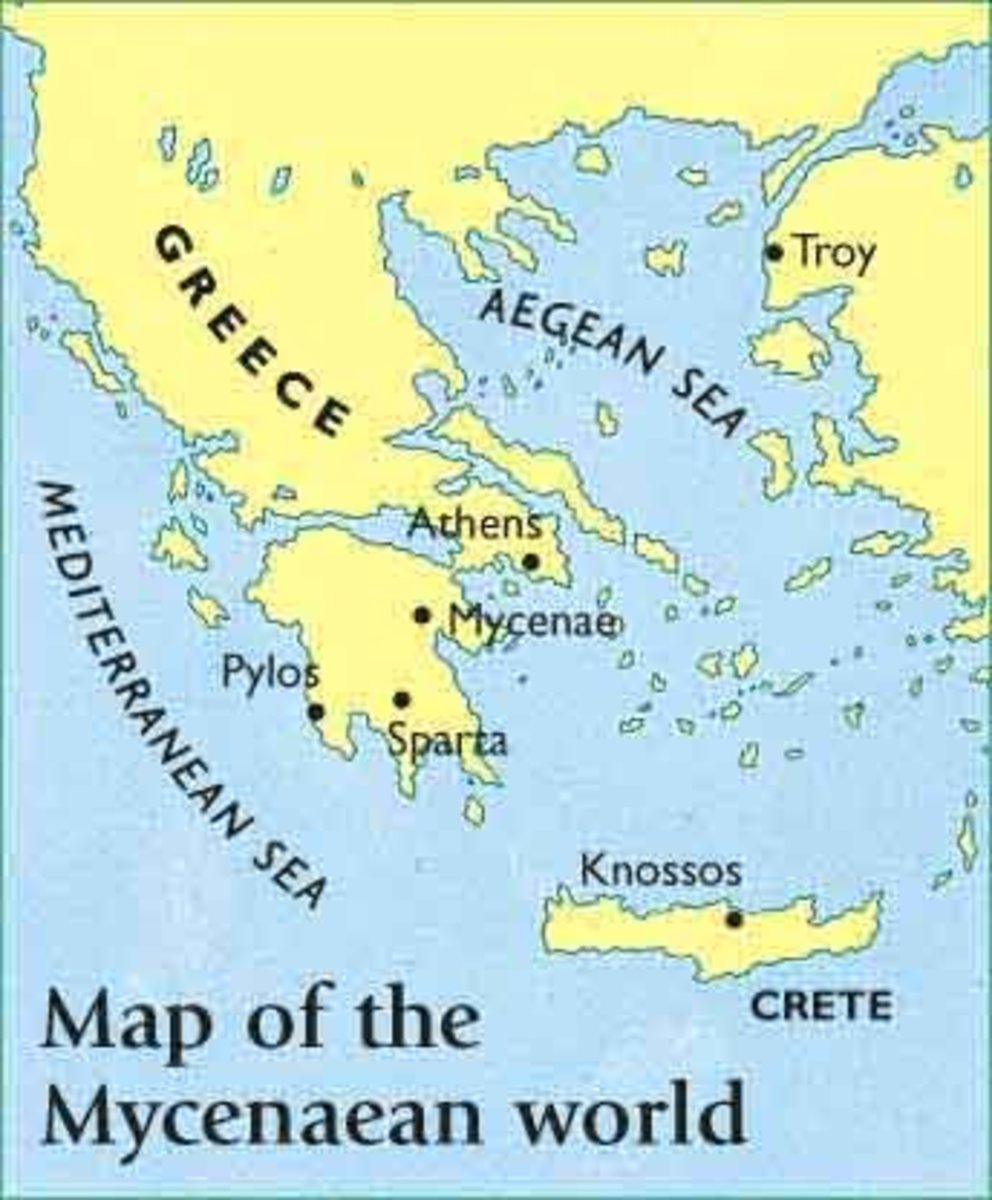Masonic History
Origin of the Freemasons
Probably one of the most disputed issues amongst intellectuals, let alone Freemasons, is where did it all begin. Most will attribute its establishement to the 18th century when the English Grand Lodge was established, but to think that nothing preceded this event and that spontaneous creation was responsible for Freemasonry's sudden appearance would be a ludicrous assumption. (see http://hubpages.com/hub/freemasons by philosophus ). There are others that will attempt to discuss earlier origins of the Freemason movement or I should say more accurately, the legendary origins of the brotherhood, since there are no documents that exist to prove or disprove the many versions of Freemasonry’s evolution but behind every legend is a kernel of truth. But therein lies the dilemma, because so many have taken the approach that they must actually have the physical documentation to prove it began in Phoenicia, or Israel, or Egypt, or Greece, or even amongst the Hatti or Sumerians. I will take a different approach to the dilemma. Possibly as a result of being the scientist that I am, or just because I like playing Devil’s advocate, I’ll try to prove what it isn’t. Also, because of the ties that existed as between the Kahana family and freemasonry, I have grown used to the the adulteration of historical facts as tales are told through subsequent generations. (see http://hubpages.com/hub/Benevolence ) if you’re trying to make sense of my previous comment, let me just reinforce that it is far easier to disprove a statement than it is to justify it. And if that is the case, then we can often arrive at the true story through a process of elimination. If you negate every other possibility, then the actual origin must be the one that is left. So with that in mind, let me begin this adventure in uncovering the origins, that couldn’t possibly be Freemasonry.

Egyptian Origins
They were some of the greatest builders the world had ever known. The fact is, that many of their secrets, are still that, secrets. How did they build the pyramids? How did they cut perfect ninety-degree angle in sold rock sarcophagi? We don’t exactly know how they did it. The fact that we only now have the tools to carve stone with that level of accuracy, not too mention have the diamond tip drills or lasers to do so, makes their achievements even more astounding. Surely, these great architects of ancient civilisation must be the originators of the freemason movement. With their great skills, they could travel the length and breadth of the world, hiring themselves out to kings and emperors, as they built monuments to civilisations that faded into extinction long ago.
Unfortunately for those wanting to believe this was the case, the answer simply is that it wasn’t allowed to happen. The Pharaohs of ancient Egypt were very protective of their master builders. So much so, they were virtual prisoners of their trade. The fact that some scholars will go so far as to give an actual date of 2781 BC, tying the origins of Freemasonry to the development of the Egyptian calendar, as the starting point for our brotherhood is wishful thinking. As any Egyptologist can tell you, any artisan of any skill, whether he be stone cutter, sculptor, architect, painter or woodcarver became property of the state. He would be well taken care of, but he and his family if he had any, was relocated to those sites where the monuments to the dead Pharaohs were being built. In and around the time of the 18th Dynasty, this meant an all expenses paid one-way vacation to Deir el-Medina, where housing, food, and entertainment were all provided with one little catch. You could never leave. You lived, worked and died in the artisan’s settlement. And because you were in possession of secrets that had been handed down through the ages, guards were placed around the settlement to ensure two things: one that you couldn’t escape, and two that no one broke in to the settlement. With this level of protection, there never could have been a roving band of freemasons from Egypt that travelled the world around 1000 BC. This system of the artisan’s village didn’t break down until the Persian conquest in the sixth century BC meaning that they couldn’t have been responsible for the early origins of Freemasonry at any time prior to this much later date. Since everything else indicates that Freemasonry did have ancient origins, then it would be very difficult to attribute it to the Egyptians.
Therefore we must conclude that the Freemasons didn't have their origins in Egypt!
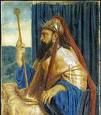
Phoenician Origins
We do know the Phoenicians were great builders, dyers and sailors. They were a trading empire that spanned the known world, venturing into the Atlantic on a sea they called their own. And we know that Solomon did call on Hiram of Tyre to provide him with builders as mentors to his Levite priests that were to become the builders of the Jerusalem Temple. Hiram of Tyre not only provided these trainers but also a steady supply of ashlar stones and cedar logs. It was good business. Considering that Tyre was considered one of the great wonders of the world, a magnificent walled city built on an offshore island, having a system of aqueducts and sewers that were state of the art, it meant that Hiram’s architects and builders also deserved the title of being Masters of their trade. But once again, as we can determine from historical documents, these men were property of their king. Hired out to foreign lands at a huge price that brought even greater profits into their island city. The Phoenicians were traders but very rarely seen to be colonisers. They tended to keep their civilisation close to home. Had it not been for the religious nature of Solomon’s undertaking, it would have been very unlikely that they would have even parted with their trade secrets. But the Levites were priests, sworn to a life dedicated to the Temple, so very unlikely to become competition for Hiram’s international construction company. Was it likely for these Phoenician builders to have been the ancestors of modern Freemasonry? Probably not, since their business was one of keeping the trade within the economy of Tyre, and not disseminating their skills worldwide. They would gladly build monuments for other civilisations, but they had no desire to see those foreign lands learn to build with an equal skill.
Therefore we must conclude that the Freemasons didn't have their origins in Phoenicia!

Greek Origins
The possibility that the Archaean and Dorian Greeks could have been the originators of Freemasonry must be considered. After all, they did spread along the shores of the Mediterranean from the Pillars of Hercules to the shores of Gaza. Along with their conquests, they built their temples and cities, wherever they spread. Since they established themselves in a series of city-states, they had no central allegiance to either country or empire and therefore their tradespeople were free to roam from town to town, trading their skills and their wares. But at the time of 1000BC, they weren’t exactly being well received in foreign lands. In fact, they were at a state of war with most other peoples. Whether as Philistines, Trojans, Greeks or Achaeans, they were considered little more than pirates, raiders and pillagers, and when they weren’t fighting with the peoples of foreign lands, they were busy fighting amongst themselves. As the legends of Troy, tell us, they were often too busy destroying than building, and their level of architecture and construction as archaeology shows us, at this time was still a mixture of mud hut to square block temple, not the master builders they were to become half a millennia later. So, if we look at the likelihood of these savage warriors, more concerned with pursuit of raping and pillaging as the forbearers of Freemasonry, the obvious conclusion is that we should keep on looking.
Therefore we mus conclude that the Freemasons didn't have their origins in Greece!
Summation:
So where does that leave us? The Egyptians, Phoenicians and early Greeks have now been eliminated as likely contenders. All three, would have been more suitable to the task a half millennia later, when their civilisations were collapsing, and the need to take your craft offshore was an economic reality. But all the legends point to the magical period of 1000 BC as the origins of the freemasons and there’s no reason why we shouldn’t accept this as the Masonic starting point. Remember, we still have other civilisations to look at; the Hittites, Sumerians and Israelites are all possible progenitors. But I'll save those for another hub as we explore possible origins of Freemasonry.
